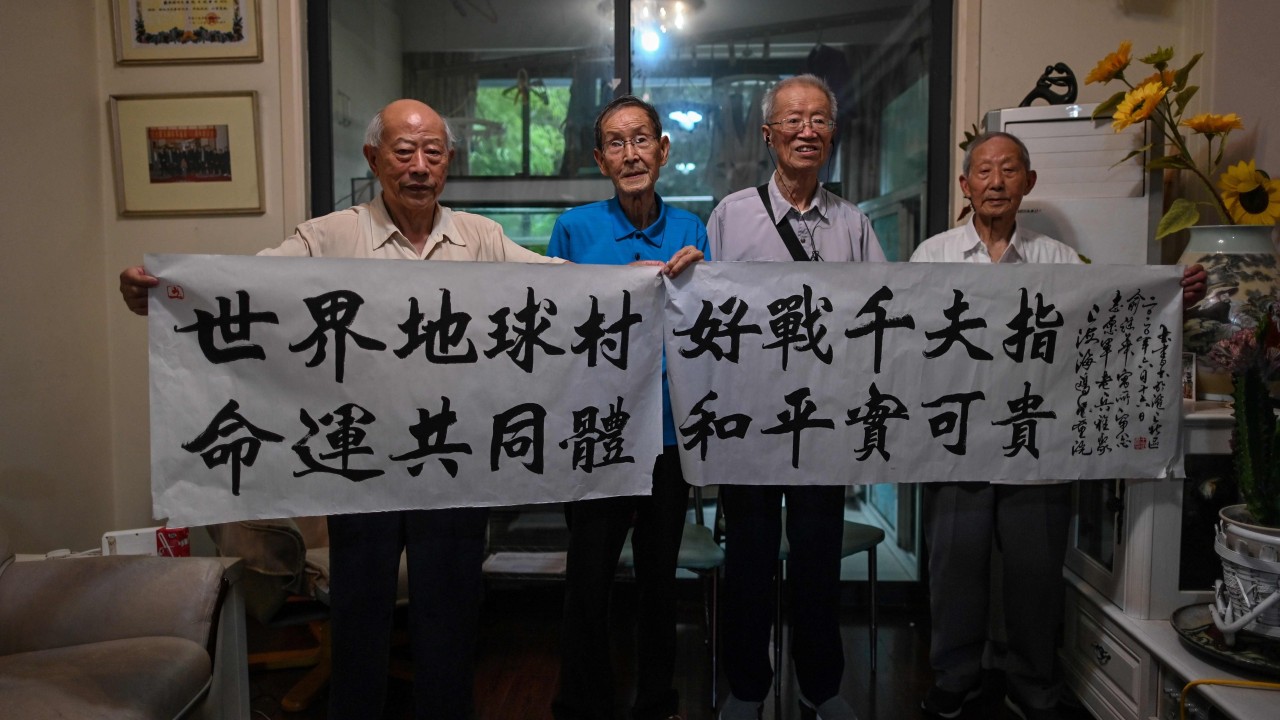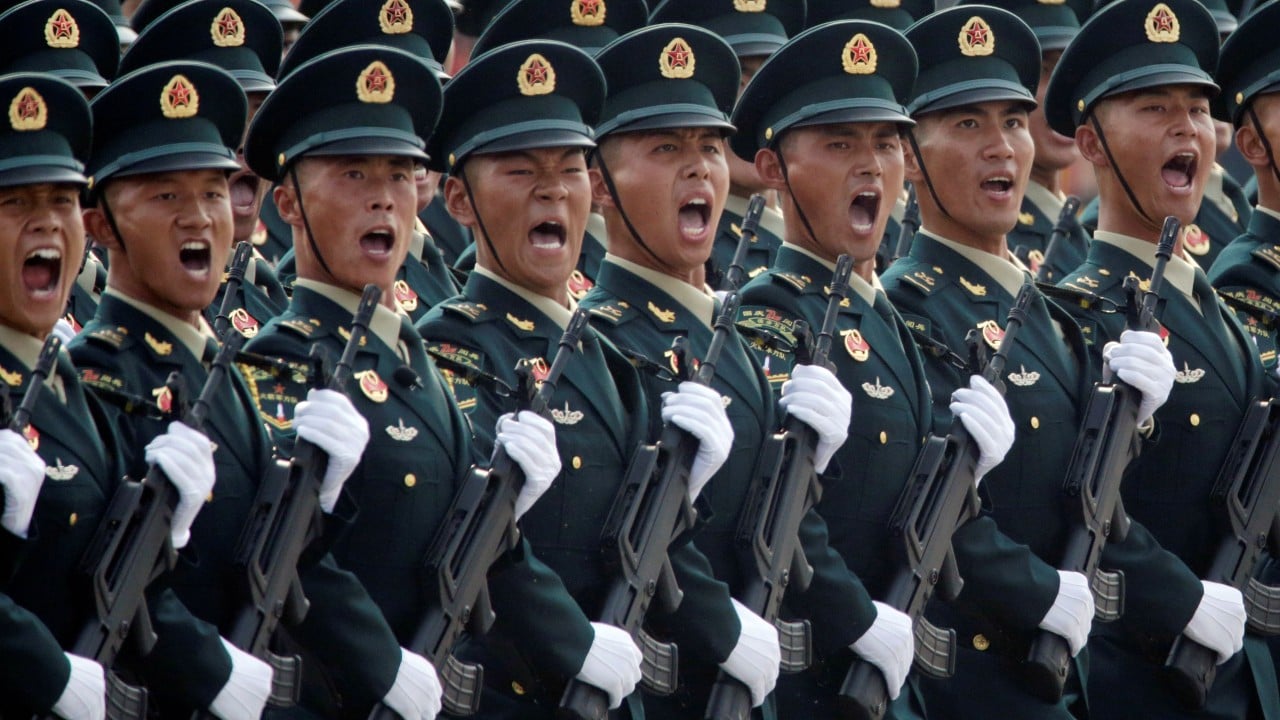
02:13
Chinese veterans of Korean War call for peace as tensions with US mount

The Donald Trump administration is finally being forced to confront China militarily. Despite often intense anti-China rhetoric over the past three years, the US president has actually done little to deploy forces to the Pacific theatre.
Despite designating the Indo-Pacific the defence department’s “priority theatre”, the Pentagon has not shifted its overall posture. In fact, tensions in the Middle East have forced the US to maintain a greater presence there, rather than move troops to East Asia to confront what it perceives as a threat from China.
But now, in the wake of the coronavirus, the US political elite has found bipartisan consensus on the need to confront China. Recently, the US Senate Armed Services Committee approved a National Defence Authorisation Act for 2021. The bill effectively outlines what the Senate would like to see the government spend on defence.
An important addition was included this year: funding for a Pacific Deterrence Initiative, which will “send a strong signal to the Chinese Communist Party that America is deeply committed to defending our interests in the Indo-Pacific”. The bill authorises US$1.4 billion for financial year 2021-22, and a further US$5.5 billion for the next year.
These figures are a pittance in the overall scheme of US defence spending. The defence budget for 2020 stands at US$738 billion, so the Pacific Deterrence Initiative next year is just 0.2 per cent of the overall budget. But the creation of the scheme is an important recognition that the US has a new-found resolve and political unity in its China policy.

02:13
Chinese veterans of Korean War call for peace as tensions with US mount
What will the initiative do? Its name reflects its provenance as it mirrors the European Deterrence Initiative created by the Obama administration.
Formed in 2014 as the European Reassurance Initiative, the European Deterrence Initiative aimed to deter Russia and reassure allies by delivering a greater US military presence to eastern Europe following the annexation of Crimea. The Pacific Deterrence Initiative aims to do the same, but in the Pacific theatre.
In essence, it will seek to move from a small number of large bases in Asia close to China’s shores to a larger number of smaller, more distributed bases with better missile defences and better pre-positioning, and which will allow for greater day-to-day activity. The goals are to make it harder for China to make a missile strike on US bases, and to complicate any plans for a conflict.
Ironically, given Trump’s frequent criticism of his predecessor, the aims of the Pacific Deterrence Initiative are almost identical to the Obama “pivot” to Asia announced in 2011. The Obama administration wanted to shift forces from large permanent bases in Japan to smaller rotational deployments throughout the region.
In this sense, much like the Pacific Deterrence Initiative, it was more of a rebalance within Asia than a rebalance to Asia.
The Obama pivot had other goals, such as rebalancing its forces to ensure 60 per cent of its navy was in the Pacific fleet (from 50 per cent previously), although in reality this meant greater deployments in Guam, Hawaii and the US west coast rather than East Asia.
The Pacific Deterrence Initiative has not outlined such lofty goals, although its spirit is to continue to prioritise the Pacific over other regions.
The problem for the US is, as previous administrations have found, that shifting away from other theatres is not always easy.
Despite nearly a decade of US policy dedicated to rebalancing to the Pacific, the Trump administration finds itself with more troops in the Middle East and Africa than when it came to power, as ongoing conflict and new crises, from Iranian strikes on Saudi oil bases to the rise of Islamist terrorism in West Africa, have diverted attention and resources.
Much as the Obama administration faced a resurgent Russia in eastern Europe as it pivoted to Asia, so the Trump administration has invested in the multiplicity of conflicts in the Middle East even as it talked tough on China.
There is a renewed effort to, as Trump says, “end America’s endless wars” and withdrawals are under way in Afghanistan and Iraq, with planned drawdowns in Germany and Africa. But crises are inevitable, and it is impossible to say whether these might hinder any particular shift to East Asia.

04:12
Are Xi Jinping’s China and Donald Trump’s US destined for armed conflict?
So, while the Pacific Deterrence Initiative is the first concrete step for the Trump administration towards a more viable deterrence posture against China, it is far from certain that it will be sufficient or able to survive more immediate tactical necessities.
The key measure for the initiative – and the US’ Asia policy more broadly – will be whether it reassures allies in the region. Some US-aligned states such as the Philippines and Thailand are already hedging their security bets by cosying up to China.
Even treaty allies, such as South Korea, have been dismayed by the Trump administration’s earlier decision to end joint exercises and deliver verbal rebukes suggesting that, without more funding , the US might reduce its military presence.
For Washington, demonstrating commitment and resolve will be the key goal of the Pacific Deterrence Initiative to stop the rot in regional alliances despite nearly a decade passing since the “pivot” to Asia. Whether it will be enough in the face of a more powerful, more assertive China will be the key test over the next decade.
Christian Le Miere is a foreign policy adviser and founder of Arcipel, a strategic consultancy